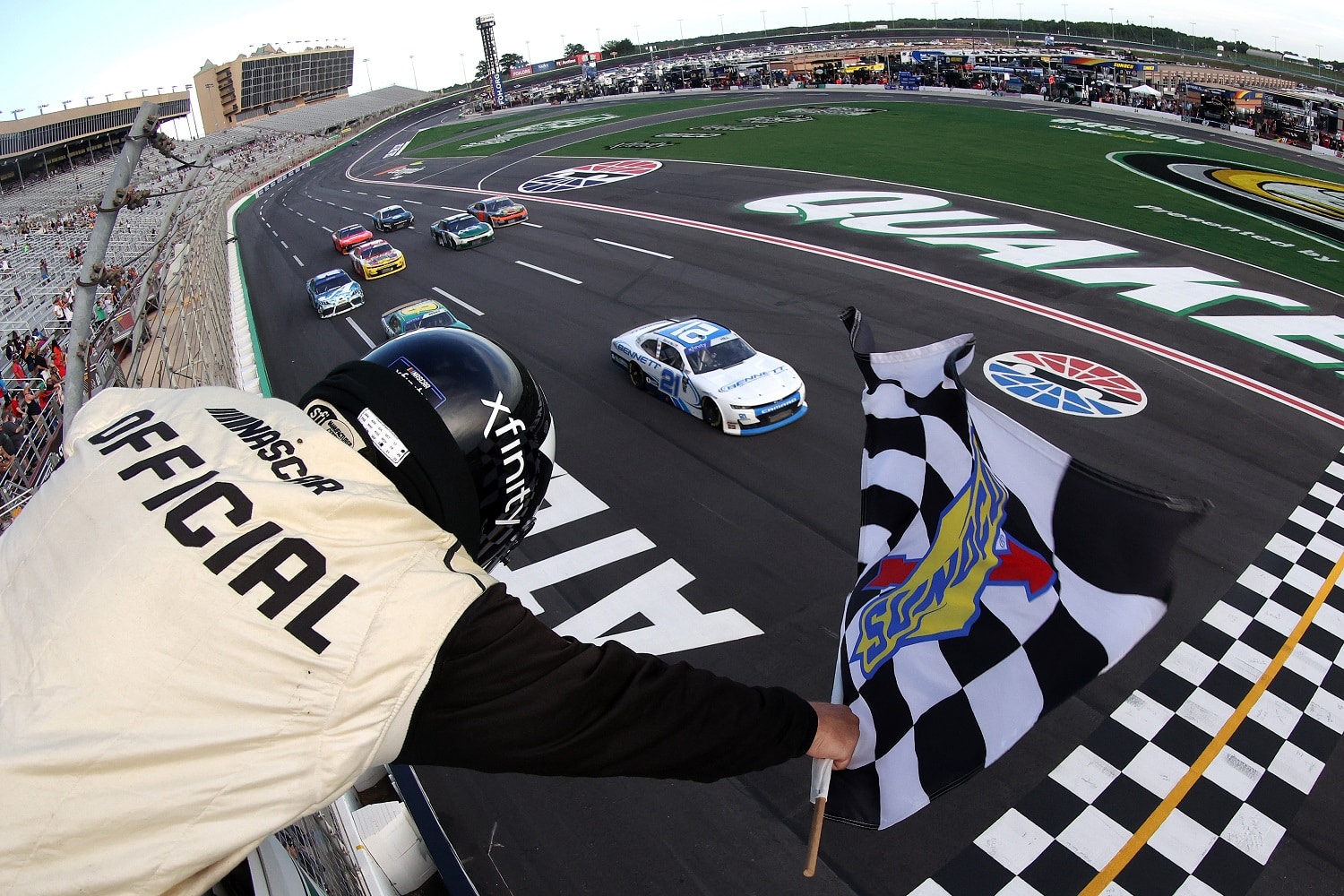NASCAR
Has NASCAR Ever Disqualified a Cup Series Race Winner?

The official NASCAR narrative is that the disqualification of Denny Hamlin after the 2022 M&M’s Fan Appreciation 400 at Pocono Raceway was the first time it had punished a Cup Series race winner in that fashion since 1960.
While it may be technically true, it’s not quite accurate. The truth is more complicated than the inner workings of the engines powering those cars.
NASCAR disqualified Emanuel Zervakis and then no one else for a long time
The name Emanuel Zervakis is not one that resonates with NASCAR fans, but he was a mostly part-time NASCAR Cup Series driver from 1956-63 who dabbled in team ownership in parts of four decades. He made 83 starts as a driver and won a pair of races in 1961.
Before that, though, NASCAR stripped Zervakis of a first-place finish after he won a race in 1960, determining that his fuel tank was too big. As a result, Joe Weatherly moved up to race champion and Lee Petty took second place in the smallish 19-car field.
That development effectively evened the score from Weatherly’s perspective. In 1955, NASCAR disqualified Weatherly and Jim Reed from the top two positions two days after a race in West Palm Beach because the cars used non-stock parts. The ruling elevated third-place finisher Herb Thomas to the top spot.
NASCAR labeled two 2017 race results as ‘encumbered’
Not long after NASCAR moved to a playoff system rather than determining its championship on season-long points, the sport’s executives realized that victories carried enormous value because they virtually guaranteed the winner a place in the playoffs. In trying to balance the integrity of the racing with the potential public relations issues associated with disqualifications, NASCAR announced an “encumbered victory” policy in 2016.
Under the policy, which NASCAR replaced with a zero-tolerance declaration in 2019, race results remained intact even if an egregious infraction was uncovered during the post-race inspection. However, the key provision of the rule prevented drivers from qualifying for the playoffs based solely on that victory.
The rule had a huge effect on Joey Logano in 2017. Upon inspecting the car after Logano’s victory at Richmond International Raceway, NASCAR uncovered an issue with the rear suspension. The sanctions included docking Logano 25 driver points, but the encumbered victory policy was the real penalty. Because he did not win another race in 2017 and fell short on points, Logano missed the playoffs.
Later that season, Denny Hamlin found himself dinged twice in one weekend at Darlington Raceway. On consecutive days, Hamlin ran afoul of NASCAR after his No. 18 Toyota won the Xfinity Series race, and his No. 11 Toyota finished first in the Cup Series event.
NASCAR stripped Hamlin of the Xfinity victory, but the encumbered victory policy covered the Cup Series situation. The latter mattered little to Hamlin because the decision allowed him to keep the win and had no playoff implications since he won previously during the season.
Like Sportscasting on Facebook. Follow us on Twitter @sportscasting19 and subscribe to our YouTube channel.
Got a question or observation about racing? Sportscasting’s John Moriello does a mailbag column each Friday. Write to him at [email protected].
RELATED: Denny Hamlin’s First-to-Worst Day at Pocono in the NASCAR Cup Series, Chronicled by Twitter











